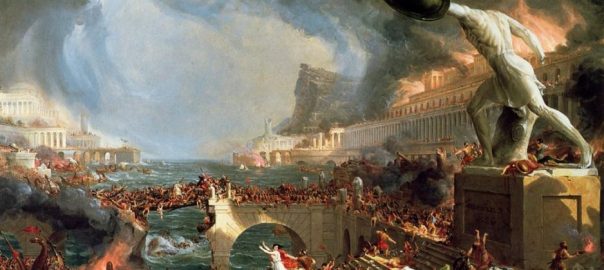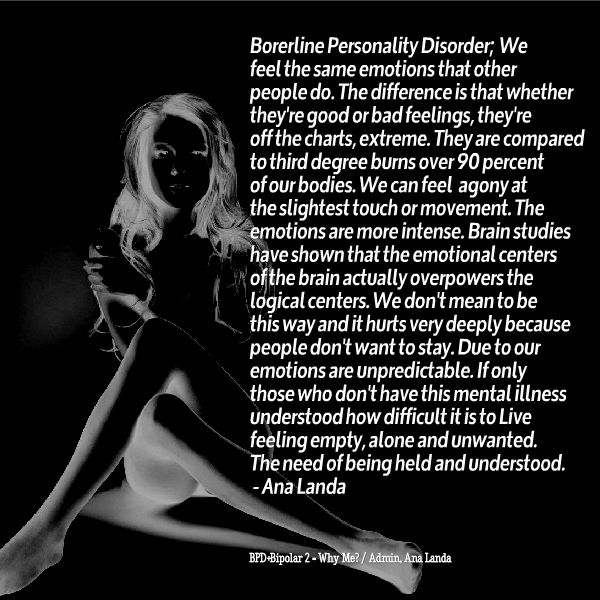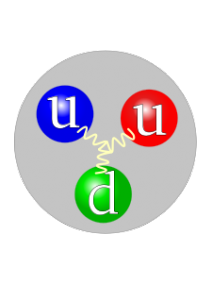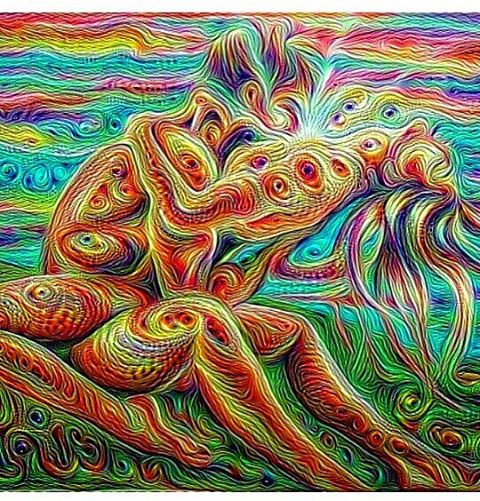Franjo, o čemu ti?
Kao prvo, bitna napomena – ovaj esej nije o pandemijskim mjerama, nije o dobrom ili lošem kriznom pristupu, a ponajviše ne namjerava biti unutar uobičajenog diskursa kulturnog plemenskog rata kojem svjedočimo na društvenim mrežama diljem svijeta. Ovo je samo pokušaj analize i objašnjenja kako je do tako kaotične i toksične situacije došlo. Kako to da postoje toliko dijametralna poimanja dobrog i lošeg pristupa u situaciji gdje su činjenice lako dostupne svima? Ukratko, svjedoci smo kriznog stanja, kao prvo ideološkog (društvo – pojedinac), vezano, i etičkog (ljudski životi – ekonomija), pa i epistemološkog (kojem izvoru vjerujemo i zašto? Te da napravimo puni krug nazad ka ideološkom, odnosno političkom – koja je uloga eksperata?). Krizno stanje popraćeno je sa i prije opasno visokom razinom polarizacije političkog spektra, o kojoj je već tradicionalno pisati, ali i zamorno čitati, znam, ali ne mogu se oteti dojmu da većina i dalje ne shvaća važnost iste. Pa neka bude naglašeno. Nadalje, zbog razmjera ludosti koje jedno takvo anomično i za društvo razarajuće stanje dovodi u svojim ekstremnim pojavama, ovdje ću ubuduće cijeli taj krizni kulturni kompleks krstiti Cirkusom. Misija će ovdje biti – kako sve navedeno objasniti na jedan elegantan, objedinjujuć i jednostavan način, a pritom što bliže pogoditi istinu stanja stvari, koliko god nekom nužno subjektivnom takvo nešto bilo u mogućnosti. Sekundarno, pokušati ćemo pronaći način kako možemo barem težiti vratiti se u neku normalu, stanje koje liberalno i demokratsko društvo podrazumijeva, određenog slaganja barem oko temeljnih principa društvenog ugovora, ili stvarnosti kao takve. Ali nije jasno da će to biti od ikakve koristi. O tome ukratko; jer su tehnološki procesi koji su katalizirali ovo stanje u praksi nezaustavljivi, ali o tome ćemo malo kasnije. Niti će itko regulirati klikbejt model, niti ljudsko ponašanje, primjerice, čitanje isključivo naslova članaka (i viralno širenje samo slike a ne linkova istih, konačno stvorivši toksični fake news mem sui generis).
Osnovna teza
„Sukob kojem svjedočimo samo je jedna – tehnologijom doduše snažno potencirana – suvremena manifestacija vječne tenzije između društva i pojedinca.“
U ovom slučaju i konkretnije, sukob je uzeo formu bitke javnog zdravstva (društveno dobro i kolektivizam) nasuprot osobnim slobodama i ekonomskoj koristi (pojedinac i liberalizam, tržište i kapitalizam). Možda moram naglasiti da osobno kao politički pragmatist i amaterski filosof ne preferiram niti jednu od tih ideologija, nego vjerujem u pravu mjeru (formuliranu i kao zlatna sredina, ili srednji put) kao nešto optimalno ili idealno (i istinito i lijepo, valja dodati). Ali tako ni društvo ni ljudska priroda ne funkcioniraju, niti naši tribalni nagoni dozvoljavaju, a sukob je zauzeo apsurdne razmjere koji prijete samom temelju civilizacije Zapada, da budem samosvjesno dramatičan (uz samo polovičnu hiperbolu, s obzirom na trenutačnu atmosferu u američkom javnom diskursu). Društvo koje se ne slaže oko temeljnih aksioma ne može opstati, ili se barem meni ne čini da postoji način na koji dugoročno može (ovo je donekle blaže u RH nego drugdje, ali poznato je da kasnimo. Tipično).
Dva plemena te njihov nastanak
Protivljenje nošenju maski, “brnjica”, odnosno uopće percepcija da su maske nekakav udarac na slobodu, prije deset godina bila bi ideja van svake pameti, naročito u društvu čije je probleme uopće teško nabrojati, na stranu da kvalitativno također nisu puno gori. Što ne znači da je odgovor najgoreg ekstrema sa suprotne strane, recimo, čuveno kinesko zavarivanje stanova zaraženih, imalo manje ludo; dapače, evidentno je nama u liberalnim društvima potpuno nezamislivo (ali tipično kineski represivno). Nadalje, koliko god istovremeno karantena Hubei provincije bila neprikosnoveno postignuće, koja je uz druge mjere doslovno istrijebila virus unutar granica Kine (baš kao prvi SARS godine 2003.), takvo nešto samorazumljivo je u konfucijanskim kulturama, ali naprosto nemoguće na Zapadu. Ali još blaže, više nije posve jasno koliko smisla ima inzistiranje na više ili manje oštrim mjerama. Koliko odgađaju ionako neizbježno? Koliki demokratski legitimitet imaju, i gdje? Kakva to čudna konzekvencijalistička etika stoji u pozadini morbidnog računa žrtvovanja ekonomije ili života, naročito u kompleksnom međugeneracijskom kontekstu? O protivljenju cijepljenju ne namjeravam ni pisati, niti se tu išta pametno može reći, osim da, politički, obje strane imaju, čini se, sasvim legitiman politički stav (samo u ovom slučaju, ali manje ili nikako legitiman za izuzetno opasno protivljenje ikakvim cjepivima). No, ono što je posrijedi je jedno apsurdističko pretjerivanje u oba narativa, a koje je dio diskursa echo chambera („ječnih komora“?), gdje svaka strana biva izložena samo najekstremnijim primjerima druge strane, a istovremeno mahom nekritički prihvaća doktrine svojeg plemena. Ali, ovo je u srži proces koji traje čitavo prošle desetljeće, s naglaskom na poznih nekoliko godina, koji je imao jedan od bitnih uzroka u globalnoj financijskoj krizi 2007-2008. te potpunom gubljenju povjerenja u vladajuću plutokratsku elitu, zatim dosegao prvi očiti vrh 2016. izborom notornog Donalda Trumpa, a sve popraćeno ubrzavajućim i moćnijim utjecajem misterioznih i sveprisutnih algoritama koji maksimaliziraju ekstreme u emocijama i stavovima (zbog specifičnog poslovnog modela u koji sad ne mogu ulaziti). Naziv post-truth bio je pun pogodak za tako nastalo razdoblje alternativnih činjenica, što je čuveni gaf koji je, poput mnogih gafova kroz povijest, savršeno opisao stanje zeitgeista. Tako da je u tom smislu teren za Cirkus bio već dugo i dobro pripremljen. Ustvari, bilo bi pravo čudo da Cirkus nije nastao. On je poput rata, znanosti ili filosofije, oduvijek postojao, te strpljivo čekao svojeg najboljeg agenta i praktikanta. Cirkusanta; čovjeka.
Dvije Kulture – Dvije Slobode
Kao prvo, kratka kritika liberalnog uma. Po meni, postoji zanimljiv fenomen desenzitacije na postojeće slobode. Čini se da što više pojedinci sloboda imaju, to jače postaju osjetljivi i na najmanji percipirani (ključna riječ) napad na slobodu. [možemo reći i hipersenzitacija na smanjenje slobode op. a.]. Maske, cijepljenje, potvrde i slično – ali koliko daleko ide ta iracionalna pojačana osjetljivost: kao pripremu za ovaj tekst intenzivno sam i dugo pričao sa oba plemena, i ne mogu naglasiti dovoljno, koliko je ključno da velik dio ljudi doslovno vjeruje u pripremu terena za uspostavu globalne tiranije. Istovremeno, mahom se radi o najslobodnijim društvima na svijetu, gdje takve ideje najviše uzimaju maha. Ovdje često volim, jer što više to proučavam to očitije postaje, usporediti temeljni doživljaj svijeta i društva pojedinaca s ove strane spektra sa pubertetlijskim stanjem razvoja u psihologiji. Ovdje, kao i ondje, sloboda ne podrazumijeva više odgovornosti, nego se gotovo menadžerski efikasno maksimalizira omjer što više slobode za što manje odgovornosti. Ovdje, kao i ondje, naglasak je na buntu, ključan oblik ponašanja je autentična samoekspresija, osobna jedinstvenost, i nepovjerenje autoritetu (što nije nužno loše, ali nije teško vidjeti da su logički ekstrem teorije zavjera, pseudoznanost i druge divne pojave). Ako bih još onaj gore niz od 2008. preko Trumpa do pandemije proširio na libertarijanski ekstremističke Branch Davidians te Oklahoma city bombings (90-tih), niz bi bio puno jasniji, ali nije toliko bitno istaknuti, niti bih morao baš tu stati. Ipak, bitno je da se radi o kontinuiranom diskursu paranoje koji vuče svoje memetičko porijeklo još od nastanka Sjedinjenih Američkih Država, ili od prosvjetiteljstva, i tako gotovo proizvoljno daleko.
S druge su strane kolektivistička društva Istočne Azije koje nisu naviknute na visoki stupanj slobode (da, ne samo Kina), a imaju vrlo razvijenu društvenu svijest koja ima duboko internaliziranu normu po kojoj više slobode dolazi samo pod uvjetom više odgovornosti; i prema sebi, i prema zajednici. Naravno, oni imaju i puno veće restrikcije (ne represivno kineske, nego prilično blage ali učinkovite) koje su lokalno shvaćene ne samo kao nešto što nije napad na slobodu, nego, paradoksalno (ili sasvim konzistentno onom gore poimanje slobode), kao nešto što slobodu, braneći društvo, u biti tek omogućava (čuveni mem o slobodi za ne umrijeti – od spriječivog uzroka). Dakle, Korejac ima slobodu ne zaraziti se, razboliti se, uopće ne brinuti o bolesti te normalno živjeti, ne brinuti da će mu roditelji umrijeti, iako je istinabog prvo mrvicu žrtvovao da bi to sada mogao. Ali i to je upitno, jer većina živi normalno (u pravilu se žrtvovao netko drugi, gdje god je lokalna karantena). Dok recimo Amerikanac iz „crvene” države ima slobodu umrijeti kako hoće, zaraziti koga hoće, ali i izlaziti van, piti, putovati – što god hoće, s dodatnim užitkom ideološkog signaliziranja svoje vrline. Kako je jedan američki televizijski voditelj rekao u kontekstu analogije života bez pandemijskih mjera, vlada nema što tu regulirati – možemo se baciti s litice ako hoćemo (ipak, nije sasvim jasno koliko bi taj fenomen bio zarazan, ili uopće načelno spriječiv). Niti je uopće jasno što je bolje od ta dva fundamentalno drugačija pogleda, ali svaka strana hvaliti će samo svoje, kako to nužno biva.
Kratko bih obratio pozornost čitatelju da se ovdje dijelom radi i o dvije vremenske orijentacije kultura i ideologija („hedonizam trenutka” slobodara nasuprot „budućnosti usmjerenog” Azijata koji odgađa trenutačnu nasladu). No da nastavimo u tom duhu, razlika je tu zbog ideologije odnosno kulture, ali i zbog psiholoških karakteristika koji u biti ideologiju uvjetuju, osim upravo spomenutih. Libertarijanci tako, recimo, imaju izražene karakteristike više racionalnosti, niže empatije, ali i iznimno više onoga što se zove „reactance“, a definirano je kao „bijes koji osjećamo kada nam netko kaže da nešto ne smijemo, ili nas pokuša kontrolirati“. Druga pak strana ima izraženu empatiju, po svemu sudeći i otvorenost iskustvu Big five tipologije ličnosti, a ionako jaku i često osobno motiviranu empatiju lako projicira i na potpune neznance, kako to u političkim diskursima gotovo uvijek biva (nedavni primjer Afganistana – i ta ideja da je ikoga imalo briga). To da te karakteristike ustvari prethode našem “odabiru” ideologije je zanimljiva tema za neki drugi tekst, odnosno Drugi pogled, ili za knjigu, koje doduše zasigurno već postoje, ali uskoro ćemo se vratiti momentu koji sam eksplicitno dotakao, ali želim razraditi.
Kako su kršćani postali Mao Zedong, a komunisti postali katolički sveci
Prvo, među bitne psihološke „orijentacije“ ovdje bih naveo i ljudsku sklonost pretjeranom optimizmu, kao i pretjeranom pesimizmu. Gotovo nitko od nas ne živi u „realnosti“, ponajviše vi koji si upravo slavodobitno mislite „ha, ja sam realist!“. Ovo se očituje možda najviše u načinu na koji tržište vrijednosnih papira funkcionira, ali stvarno, bilo kakvo predviđanje (da ne kažem modeliranje) budućnosti osuđeno je na takvu propast. Dovoljno je pogledati opus futurista 20. stoljeća koji varira gotovo isključivo iz sumanutog i komičnog optimizma u tmurni, depresivni pesimizam, pa naravno nazad; i to među ekspertima i znanstvenicima, dapače, među njima najviše. Sve to ovisno već o nepredvidivim tehnološkim otkrićima, te geopolitičkim igrama koje su ih potencirale, omogućile, te na nejasne načine uvjetovale. Tako su oba naša korona-plemena, svaka u svoje vrijeme, i na malo drugačiju temu, promašila za točno red veličine, ali i dalje svatko to obavezno spočitava svakom, sada doduše manje nego prije. Istinabog, samo jedno pleme je sklonije blokirati ljude ako se uopće spomene da oba (!) griješe, ali to je već druga, i meni osobna, tema, ali testirano i na puno manjem uzorku. Ipak, cijela ova dijalektika optimizma i pesimizma također zaslužuje novi tekst, i taj ću nadam se jednom i zapisati, a zasad neka samo bude spomenuto, kao bitna urođena pristranost kojom smo svi označeni, osuđeni, prokleti. O budućnosti mogu sa sigurnošću reći samo: jao onom što previđa budućnost.
Drugo, još malo o shvaćanju slobode. Naime, ako te dvije kulture (a koje se onda očituju poput fraktala, ali blaže, i unutar pojedinačnih društava) poimaju slobodu na toliko drugačije načine, dobro je da smo definirali što mislimo pod jednom, a što pod drugom. Kao često, da ne kažem uvijek, problemi u filozofiji svode se na probleme u jeziku, značenju, odnosno na semantiku. Pa da ponovimo da je prva sloboda specifična, te da u njoj u biti dolazi do zbrke u klasičnoj distinkciji „slobode za“ i „slobode od“, to je sloboda koja uzima za sebe kao slobodnu upravo zbog toga sto se odriče odgovornosti, kao što smo prije kratko rekli, dakle koja uzima svoj objekt kao temeljno pravo (iz definicije „slobode od“), dakle nužno bez dodatnih uvjeta. „Ja neću nositi masku, ja nisam odgovoran prema nikome, ja nikome ne dugujem ništa“, da citiram prijatelja. Druga sloboda, ona kolektivistička, nužno veže koncept više slobode sa proporcionalno više, svakako ne manje, odgovornosti, barem u velikoj većini slučajeva (vrlo niska razina osobne slobode odnosno „slobode od“ društava Sinosfere). Ali u biti to je i ona tradicionalistička sloboda, barem svojstvena zapadnim tradicionalizmima. Zanimljivo, neki su tu protiv vlastitih principa, primjerice, protiv principa svetosti ljudskog života, a kojeg su mnogi tobožnji katolici naglo izgubili. Ali u tom drugom shvaćanju slobode, odnosno u toj opreci samoj dolazimo do bitnog problema. Obje strane su za slobodu, tu nema sumnje. Ovo je truizam na razini šestogodišnjaka koji, priupitan, intuitivno staje na stranu dobra, pa što će drugo? Ali pitanje je, valjda za nas odrasle – smatramo li slobodu koja maksimalizira omjer onog-što-smijem vs. onog-što-moram-zauzvrat, dobrom, ili pak smatramo dobrom slobodu koja nužno taj omjer ostavlja na 1:1, odnosno, točno onoliko koliko je slobode, toliko je odgovornosti. Naravno, i tu postoji kontinuum, jer neke stvari zaista valjaju biti temeljna prava, a neke ograničene, i to razborito i stupnjevito, u pravilu ne apsolutno. Problem je što je spomenuta polarizacija društva potpomognuta tehnologijom realno uništila te lijepe sive zone gdje istinski život te istinska misao obitava. Pa se fokusiramo na one prve, ali i jer je lakše mentalno baratati ideal-tipovima (koji su istovremeno najviše apstrakcije ali i najčešće konkretizacije, u medijskoj atmosferi u koju smo uronjeni). Samo da se kratko vratimo na tradicionalističku nekonzistentnost u vezi života: ja osobno mislim da je vrhunac globalne kulturne ironije što su mahom kršćanske nacije odlučile maksimalizirati dobit, BDP, kod nas je tu naravno turizam, odnosno čuvena „sezona”, a blaže ili ozbiljnije odstraniti „one koje ionako ne pridonose“ (nego opterećuju sustav), ta kvragu i sa svetošću ljudskog života. Da ni ne spomenemo hrvatsku kulturu kafića i neke vrste osobnog komfora koji je izrazito hedonistički, a vrlo malo kršćanski. Dok je kultura ili pokret poznat po masovnim pokoljima, naročito u novijoj povijesti pod utjecajem maoizma, odlučila štititi baš svaki život pa makar to značilo snažan ekonomski pad (za one koji vole brojke: tri smrti na milijun, drugim riječima, 3 milijuntinke ukupne populacije), a Wuhan i drugi gradovi su trpjeli odricanja i pokoru dostojnu divljenja, ako ona već nije eksplicitno kršćanska. Naravno, svi odgovorni imaju svoj legitimitet za očuvati, i svaka elita radi ono što joj je na kraju u interesu, pa je obrat kršćanstva i komunizma ovdje sasvim slučajan, osim komunitarnog duha obojega. Ali ne može se reći da taj obrat, promatran na globalnoj razini uslijed dekadencije Zapada i uzleta Istoka, nije poetičan, ili simboličan. Da, dobro ste uočili, čitav naslov ovog poglavlja samo je radi ove glupe zamjedbe.
*
Nema univerzalnog odgovora na ovaj problem, baš kao što nema univerzalnog odgovora na pitanje „Što je dobro?“. Neki ljudi naprosto spadaju u prvu kategoriju, a neki u drugu (rijetki u onu kompliciraniju) kao što svjetonazorski lijevi ili desni stavovi (primjerice, u vezi homoseksualizma ili imigranata) snažno koreliraju sa „osjetljivošću na odurnost“ (disgust sensibility) za desnu opciju, a koja je prirodno distribuirana u populaciji (i desnica u širem smislu, i ta osjetljivost). Ipak, ako težimo nekoj univerzalističkoj etici i spremni smo prihvatiti određene nužno upitne aksiome, možemo reći deontološki, da je dobro da se svaka smrt spriječi, neovisno o ekonomiji; ili pak konzekvencijalistički, da se balansiraju smrti i dobrobit ekonomije, za što veću korist odnosno što veće dobro (za što veći broj ljudi?). Naravno, obje etike mogu dovesti i do suprotnih zaključaka, ali ovako se najčešće manifestiraju u stvarnosti. Isto tako je etikom vrline trivijalno doći do bilo kojeg od tih zaključaka; ili pak ni jednog, kao što ja uporno odbijam, jer sam kul. Ali to samo implicira da će ovaj sukob ostati ovdje još dugo, te da će pronaći još puno šarenih oblika (kao što su prije, ali i sada aktualne, klimatske promijene izazvale). Na kraju, implikacija je da će ostati zagarantirano, dijelom zbog ljudske prirode ali ponajviše zbog načina funkcioniranja društvenih medija, koji monetiziraju ekstremne emocije, da što god dođe sljedeće, nastaviti biti upravo Cirkus. Barem u takozvanim slobodnim društvima, odnosno u liberalnim demokracijama, gdje slobodni javni diskurs postoji. Ne znam za druge, ali ja ću nastaviti promatrati, kao što Cezaru priliči. Ako postoje samo teoretičari (teorija originalno znači promatranje) i cirkusanti, kako kažu na engleskom: that’s not even a choice. Ostalima želim samo da vam Jupiter podari mudrosti, ili da sami odaberete mudro, ako već vaša psihologija ne odabire za vas.
Lažem, potonje je.





